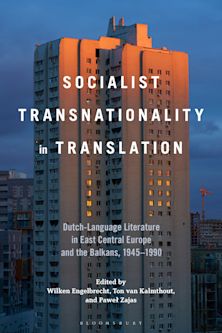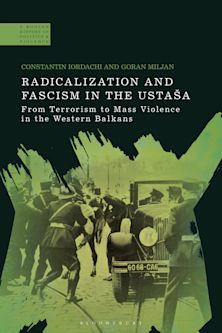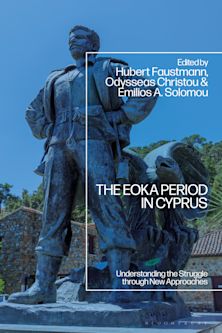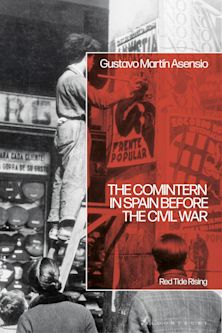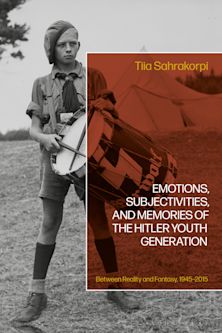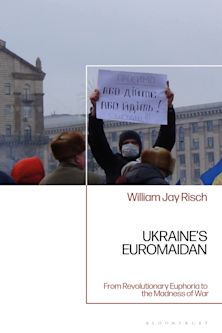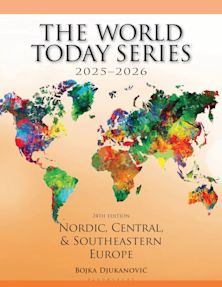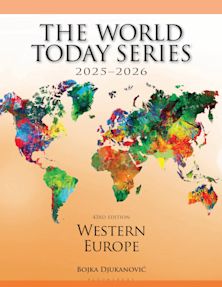- Home
- ACADEMIC
- History
- European History
- The Cultural Gradient
The Cultural Gradient
The Transmission of Ideas in Europe, 1789D1991
Catherine Evtuhov (Anthology Editor) , Stephen Kotkin (Anthology Editor) , Lawrence Dickey (Contributor) , Andrzej Walicki Catherine Evtuhov (Contributor) , Natalia Pirumova (Contributor) , Terence Emmons (Contributor) , Bernice Rosenthal (Contributor) , Charles Ruud (Contributor) , Elzbieta Kaczynska (Contributor) , Glennys Young (Contributor) , Norman Pereira (Contributor) , Jack Matlock (Contributor) , Alain Touraine (Contributor) , Adam Michnik (Contributor) , Jacques Le Goff (Contributor) , Hugh McLean (Contributor) , Nicholas Riasanovsky (Contributor)
The Cultural Gradient
The Transmission of Ideas in Europe, 1789D1991
Catherine Evtuhov (Anthology Editor) , Stephen Kotkin (Anthology Editor) , Lawrence Dickey (Contributor) , Andrzej Walicki Catherine Evtuhov (Contributor) , Natalia Pirumova (Contributor) , Terence Emmons (Contributor) , Bernice Rosenthal (Contributor) , Charles Ruud (Contributor) , Elzbieta Kaczynska (Contributor) , Glennys Young (Contributor) , Norman Pereira (Contributor) , Jack Matlock (Contributor) , Alain Touraine (Contributor) , Adam Michnik (Contributor) , Jacques Le Goff (Contributor) , Hugh McLean (Contributor) , Nicholas Riasanovsky (Contributor)
This product is usually dispatched within 2-4 weeks
- Delivery and returns info
-
Flat rate of $10.00 for shipping anywhere in Australia
You must sign in to add this item to your wishlist. Please sign in or create an account
Description
Is there a sharp dividing line that separates Europe into "East" and "West"?
This volume brings together prominent scholars from the United States, Canada, France, Poland, and Russia to examine the evolution of the concept of Europe in the two centuries between the French Revolution and the collapse of the Soviet Union. Inspired by the ideas of Martin Malia, the contributors take a flexible view of the "cultural gradient"-the emergence, interaction, and reception of ideas across Europe. The essays address three dimensions of the gradient-the history of ideas, regimes and political practices, and the contemporary political and intellectual scene. In exploring the movement of ideas throughout Europe, The Cultural Gradient brings a new historical perspective to the field of European studies.
Table of Contents
Part 2 History of Ideas
Chapter 3 Translatio Imperii and Translatio Religionis: The Geography of Salvation in Russian and American Messianic Thinking
Chapter 4 The Religious Westernism of Ivan Gagarin
Chapter 5 Guizot in Russia
Chapter 6 Alexander Herzen's "Russian Socialism"
Chapter 7 The Problem of "Russia and the West" in Russian Historiography (with special reference to M.I. Rostovstev and P.N Miliukov)
Chapter 8 William James through a Russian Prism: The Case of the Moscow God-Seekers
Part 9 Regimes and Political Practice
Chapter 10 Crosscurrents of French, Austiran, and Russian Security Policing, 1750-1990
Chapter 11 Poland between East and West: Law, Order, and Political Policing in the Kingdom of Poland, 1815-1914
Chapter 12 Terror in Pravda1917-1939: All the News that was Fit to Print
Chapter 13 Modern Times: the Soviet Union and the Interwar Conjuncture
Chapter 14 Persistence of the Ethic of Soviet Socialism in Late Twentieth Century Russia
Part 15 The Contemporary Scene: Politics and Intellectuals
Chapter 16 Russia, Europe, and "Western Civilization"
Chapter 17 A Critique of the Concept of Globalization
Chapter 18 Scenes from the Polish Hell
Chapter 19 Poland, Europe, and Russia
Chapter 20 Foxes into Hedgehogs: Berlin and Tolstoy
Chapter 21 Martin Malia and the Understanding of Russia
Product details
| Published | 23 Nov 2002 |
|---|---|
| Format | Paperback |
| Edition | 1st |
| Extent | 320 |
| ISBN | 9780742520639 |
| Imprint | Rowman & Littlefield |
| Dimensions | 228 x 148 mm |
| Publisher | Bloomsbury Publishing |
About the contributors
Reviews
-
A welcome addition to the study of intellectual history. It engages many of the subtle complexities involved in not only understanding Europe's past, but also-and pertinently so-in reflecting upon her future.
Frances Nethercott, University of St. Andrews, Studies In East European Thought












